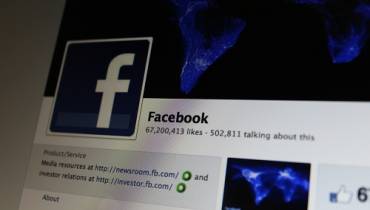Half of Users Would Quit Facebook if Offered $50, Study Finds

How much money would be enough incentive for you to quite Facebook?
According to a recent study by a team of researchers at the Massachusetts Institute of Technology (MIT) and the University of Groningen in the Netherlands, a reasonable price tag that people are willing to take to give up all access to the giant social media network for one month is $50.
Yep, Facebook users would quit the platform if offered 50 bucks.
Users would quit Facebook for $50
The researchers surveyed 2,885 Facebook users in the U.S aged over 18 years in two separate experiments conducted throughout 2016 and 2017. Participants were asked to choose between giving up Facebook for a month in exchange for cash and keeping Facebook and not receive any money.
The researchers varied the cash offer incrementally from $1 for the first group of participants, raising the offer across twelve price points (1, 10, 20, 30, 40, 50, 60, 70, 80, 90, 100, 1000) for subsequent test groups. When the offer amount reached $50, more than 50 percent of the respondents said they would give up all access to Facebook for one month.
To make the survey consequential, the researchers informed respondents that they would randomly pick one consumer out of every 200 respondents and fulfill that person’s selection. Respondents were further informed about the procedure that would be used to monitor their Facebook online status remotely and the requirement to provide their email address.
Despite recent calls to quit Facebook using the hashtag #DeleteFacebook in protest to the social network's mishandling of people’s personal information, it turns out leaving behind that digital connection with friends and family, and an archive of treasured moments on Facebook is not so easy after all. People would need significant monetary incentive to stay away from Facebook.
“The more time a consumer spends on Facebook the more likely they are to keep their access,” the researchers observed. “Similarly, the more friends someone has on Facebook (self-reported, measured on a 6-point scale from “less than 50” to “more than 1000”) the more compensation they require to leave Facebook.”
Interestingly, the price point for leaving other digital services, like Google search, is much higher.
Cost of giving up other digital services higher
As part of the second experiments, the researchers set out to examine people’s attitudes towards other digital services, including search engines, email, video, music, e-commerce and instant messaging. The researchers found search engines are the most valuable service among all categories.
People would not give up search engines for a year unless they were paid $14,760 or higher. And as many of these digital services continue to grow in scope and reach, their values have also increased over time, the researchers noted. The price for quitting search engines, for example, increased by nearly $3,000 in 2017 up from a parallel poll conducted the year before.
The MIT-University of Groningen study, though technically aimed toward investigating shortcomings of GDP (gross domestic product) as a country's welfare measure, inadvertently reveals what many of us perhaps already know: Facebook and other digital services like Google search have morphed into a utility that people the world over can't do without.
People might try to cut back on time spent on social networks, but it appears users are not (yet) ready to leave entirely. It seems we’ve made our peace with the Big Brothers collection of our data.
"It [Facebook] is part of the global Internet infrastructure now," says Safiya Noble, a University of Southern California professor and author of Algorithms of Oppression: How Search Engines Reinforce Racism. "Many people no longer use the phone book to find people or Consumer Reports to evaluate products and services. They rely upon their social networks through Facebook."
So, although we might not like how the digital services track, store and use our personal information, such as was decried in the recent Cambridge Analytica scandal, we have become dependent on the services. We can’t help ourselves, really. Social media services like Facebook invite compulsive use. And so we will continue to be drawn to the services like a moth to the flame.













![7 Inspirational Quotes to Uplift You [INFOGRAPHIC] young-woman-inspired-notes-smile-inspiration-quote](/sites/default/files/styles/video_thumbnail_bottom/public/young-woman-notes-smile-inspiration-quotes.jpeg?itok=DqYtOSE1)






